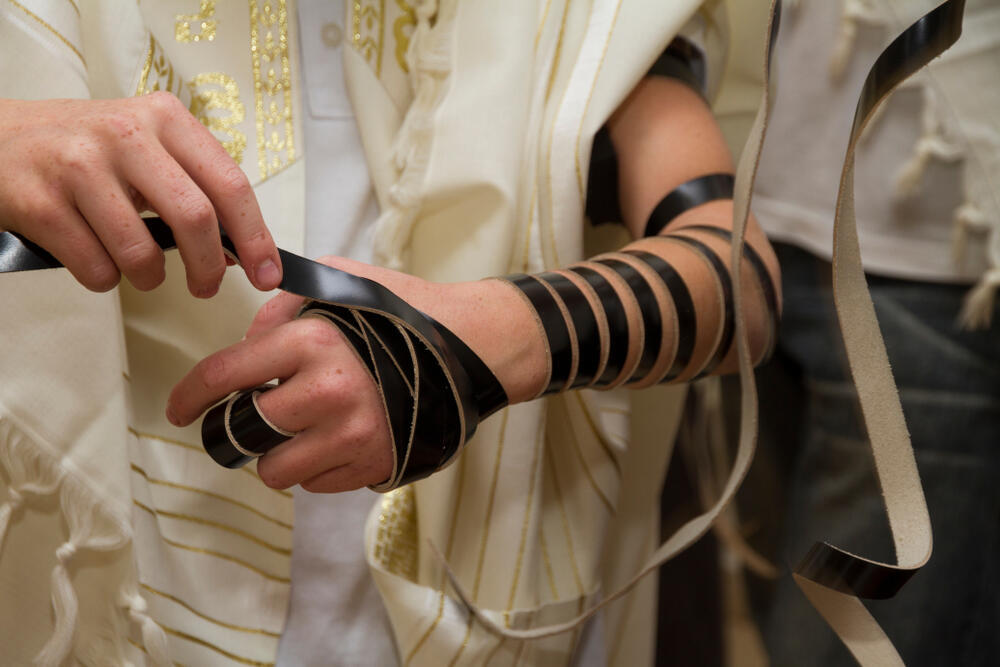Getting your Trinity Audio player ready...
Rabbi Jonathan Abraham, 47, from London found himself in a legal quagmire in Ireland, where he was arrested last month for performing circumcisions on Muslims without medical credentials or a license. Adding to his woes ,Abraham has raised the alarm about his human rights being violated in prison due to the lack of kosher food. Following a court hearing, the prison authorities pledged to "change their practices regarding the provision of kosher food to inmates."
Abraham first appeared in an Irish court on August 1, charged with "performing a surgical procedure" in Dublin without being a licensed physician. On Friday, he was back in court for a hearing on extending his detention. The rabbi told Judge Noelle Jackson that he had repeatedly brought up the issue of kosher food to prison authorities, but his pleas had fallen on deaf ears.
During the hearing, Abraham described his plight: "They served me a piece of chicken in a cardboard box and told me it was kosher. The word 'kosher' was handwritten on the box. It was just a regular cardboard box that all inmates receive their meals in." He added: "There is no way such chicken could be kosher."
Since his incarceration, Abraham has been subsisting on cereal, boiled potatoes, cooked peas and occasional fruits. Paul O'Neill, a representative for the detention center manager, said during the hearing that the prison authorities had informed the kitchen officer about Abraham's dietary requirements. They even conducted some online research about kosher food.
O'Neill acknowledged that the kitchen officer is not an expert in kosher food. "All I can say is that the food was prepared to the best of the kitchen's ability. No attempt was made to repackage the chicken that arrived on the tray. We made every effort to assist Mr. Abraham." However, he added that the prison administration had begun efforts to obtain kosher food from an authorized source but faced challenges on Saturday because "everything is closed for the Jews." He assured: "There will be a change in our practice regarding kosher food."
Michael O'Higgins and Michael Staines, the lawyers representing Abraham, said in a statement: "The state has disgracefully failed in its obligations to Mr. Abraham. We would go so far as to say that the evidence presented in court is quite shocking."
Abraham was arrested in Dublin at the end of last month, and his bail request was subsequently denied by the district court. The state opposed bail, citing the severity of the offense and claiming that "the defendant poses a flight risk." If convicted, he could face up to five years in prison and a fine of up to 130,000 euros.
Rabbi denied tefillin in prison
During the hearing on extending his detention, Ireland's Chief Rabbi Yoni Wieder explained the importance of kosher food and the use of tefillin, which Abraham was initially barred from receiving. Wieder said during the hearing that "eating non-kosher food is a red line for Jews who observe kashrut. Kosher food meets Orthodox Jewish requirements and is approved by a recognized rabbinical authority, such as the Chief Rabbinate of Ireland."
"Many Jews are appalled that the Irish prison system does not provide kosher food for a Jewish inmate like Rabbi Abraham," Wieder added. He noted that he did not personally know Abraham before his arrest but that: "Many people I know in Britain know him and speak highly of him."
The detention center representative said that tefillin, or phylacteries, could be used as a weapon, such as to tie up another inmate. However, the defendant's lawyers argued that Abraham is in a cell alone. "No other inmate had access to him or his cell, and he did not have access to other inmates in Cloverhill," they said. The judge ordered the prison administration to allow the rabbi to pray with tefillin.
In a statement to the media, Wieder said: "It is very disappointing that it takes so long to resolve the issue of kosher food and that an appeal had to be made to the court. Immediately upon Rabbi Abraham's arrest, I raised this issue with several prison officers. Everyone I spoke to agreed that it was appropriate to provide kosher food and expressed willingness to help. Unfortunately, a suitable solution did not materialize."
Weider continued: "When I continued to raise the issue last week, I was told that kosher food was provided – although no professional guidance was sought regarding kosher requirements, and no kosher supplier in Dublin was contacted." He described the ongoing saga. "I informed the prison staff several times that kosher meals must be prepared in kosher utensils, using ingredients under rabbinical supervision. There was no possible way to meet the requirements without buying food from outside the prison. I know there is a strict protocol regarding bringing outside food into prisons. However, this is a matter of human rights concerning religious issues, and it is easily accepted in other prisons when needed."
"I am glad that following the court's ruling, Rabbi Abraham will now receive food that fully meets kosher standards, and he will have daily access to tefillin," Weider concluded.





